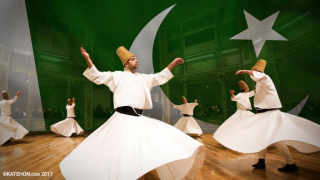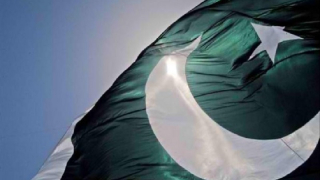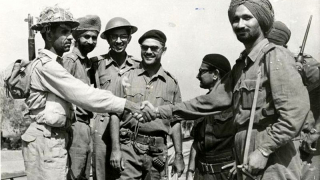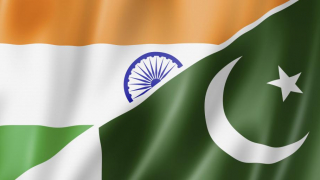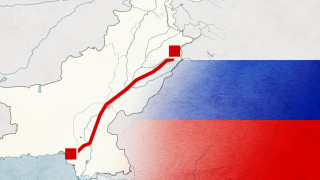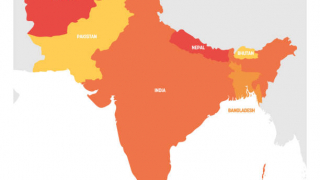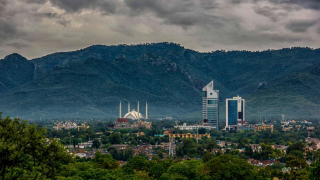Russia-Pak Media relations
The first ever Pakistan media delegation visited Russia from 9th to 16th September 2018 to interact with their counter-parts and share experiences. The delegation comprised big media stars like Rameeza Majid Nizami, Fahd Hussain, P.J Mir, Hafiz Tariq Mehmood, Mona Alam and Atif Sajjad. Although the time was short to grasp the essentials, it became epoch making in the sense that it was first ever media delegation to visit the Russian Federation. The warmth and enthusiasm displayed by the host county was discernible and encouraging, opening new vistas of cooperation in the field of information exchange and people to people contact.
Russian media has evolved over a period of last hundred years and in present form it is in a state of transformation from the old model to market economy; however the Russian interest and narrative remains supreme. Russia is very much cognizant of threat of hybrid war and use of Non Kinetic Warfare due to information empowerment of the masses and global competition. The current media is managed through a system of vertical and horizontal interface between various state and private organs, top quality production houses, use of info technology, sustained human resource development of international standards (grooming of youth for leadership positions for future) and good quality products in all mediums like print, electronic and social media.
The physical structures used by media outlets, state of the art information technology being used and quality of their products indicates that state and private enterprise is using appropriate resources to make sure that Russia is projected as the new emerging superpower who has moved ahead by not shedding the past but maintaining the historic links with the past and building upon its strengths to move onto a new trajectory, commensurate with power potential of Russian Federation. One small example is that even news agencies like Interfax and Sputnik were housed in buildings larger than the ministry of foreign affairs building in Islamabad. Since the global competitors like CNN, BBC and Al Jazeera had a head start lead over Russian media outlets like RT and Sputnik, there is an urgency to bridge the gap through use of more organized, resourced and smart organizations.
Russia is sensitive to its general perception in international community and threat of Hybrid War due to heterogeneous nature of the society and vast expanses of geographical boundaries stretching from Eastern Europe to Japan and from Arctic to Black Sea. Think tanks, academia, news agencies and media platforms covering entire gambit of print, electronic, digital and social media are seamlessly fused to create a favorable environment for domestic and foreign audience, presenting the soft but confident.
As compared to news agencies in Pakistan, Russian News agencies are a very serious undertakings with a global network housed in prestigious buildings and using state of the art infrastructure and compatible human resource. News Agencies are divided into those specially designed for Russian business interests and those meant for general media, ‘Interfax’ under the able leadership of Renat Abdullin operates like a data base focusing on the business interests of Russia and maintaining a large data bank related to all aspects of business in Russia and has clientage in foreign countries for those seeking investment in Russia. Similarly Sputnik or ‘Rossiya Segodnya’ is a large news agency cum channel which has its origin in Voice of Russia but now an expanded role as a website, radio broadcast and news agency. It has regional editorial offices in Washington, Cairo, Beijing, Singapore, London and Edinburgh. Sputnik focuses on global politics and non-Russian audience. Sputnik operates websites featuring reporting and commentary in over 30 languages. Its radio broadcast is over 800 hours per day.
Russian media has realized that the current and future media competition cannot be managed individually by print ,electronic, digital and social media platforms, that’s why one could see interface between all four and Russian media can be classified as one of the best Hybrid Media platform in the world. Media is fairly open and free, however it remains sensitive to national interest of Russian Federation focusing on issues rather than barber shop gossip. The advantage is of policy direction and focus without wasting energies, time and resources on infighting.
Russian Media has multilingual platforms, especially in English, Spanish, Arabic, French, and Latin American. Russia has been a global power and her ability to develop multi lingual platforms already existed since the Soviet era, however it has evolved over last three decades with a modern outlook and use of state of the art information technology.
Think tanks and academia play a vital role in providing intellectual input as well as informed debate on issues concerning Russian national interest, for example “Geopolitca Russia” under able guidance of professor Alexander Dugin and his team of young intellectuals like Leonid Savin (editor Geopolitica RU) are working on the forefront of Eurasian Movement, inviting whole of Eurasia to work together for economic development and emancipation of 5.2 billion people in the region.
It was interesting to interact with Dr. Irina N. Serenko senior scholar for Pakistan Studies Centre, Dr Sergey N Kamenev director Centre of Pakistan Studies,Dr Ludmila Vasilyeva who is PhD in Urdu literature in Literature department of Institute of Oriental Studies in the Russian Academy of Sciences and old friend Andrew Korybko of Sputnik. The orientalists were of the view that South Asians were not paying due attention to their national and regional languages like Hindi, Urdu and Punjabi and Russian students learning Hindi, Urdu and Punjabi will not able to find meaningful utility in near future. They were also surprised how 1.5 billion people of South Asia were voluntarily making their languages become redundant, this has never happened in the history of nations.
The interaction with Pakistan community of two cities Moscow and St. Petersburg was also very fruitful and encouraging. Although they are limited in numbers, but they have kept the National flag high in business and social service. In Moscow we were hosted by Pakistani community in a Pakistani restaurant where the community donated 5000 dollars for Pakistani dams. The Pakistani community is of the view that there exists a wide scope of expanding business ties and people to people contact, especially in media and entertainment industry. In St. Petersburg the delegation was hosted by Dr. Abdul Rauf Rind, who has been in Russia for couple of decades and he is the Honorary Council General of Pakistan in St. Petersburg. He has voluntarily worked for last 12 years in developing relations between Pakistan and Russia. The Russia-Pak journalist forum was held in St. Petersburg through the courtesy and effort of Dr Rind. The representative from vibrant journalist community of St. Petersburg exchanged views with Pakistan media delegation and were excited about opening new vistas of cooperation. Tatyana Cherneyko, Project manager exhibition division and Oleg Davtyan, Editor in chief member of association of Russian Diplomats welcomed the delegation and highlighted need for expanding the media interaction between both countries.
Another major highlight of this tour was the interaction with the embassy staff at the residence of his Excellency Mr Kazi Muhammad Khalilullah, Pakistan’s ambassador to Russia, who despite serious illness of his wife hosted the delegation and apprised them about diplomatic and economic relations between Russia and Pakistan. The delegation also got a chance to interact with Dr. Jumma Khan Marri, once a Baloch separatist leader, who has now joined the mainstream of Pakistan and is exposing Indian RAW’s secret relationship with terror outfits operating in Balochistan.
Due to shortage of space, I will be covering the interaction with Pakistani community in a separate paper. I would end the paper with note of thanks for our hosts from Moscow setup who left no stone unturned in making this ground breaking visit as a great success as well as the stars of media delegation who helped a novice like me to learn from their rich experience. Special thanks to PJ Mir, who kept everyone on tenterhooks through his subtle humour.


